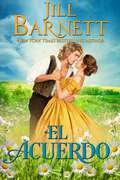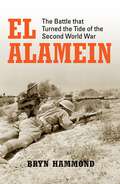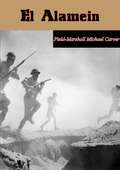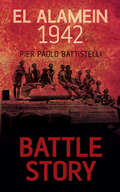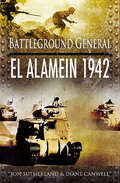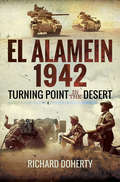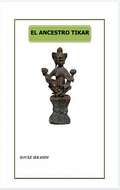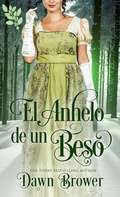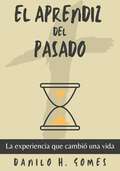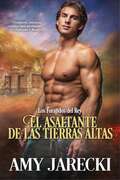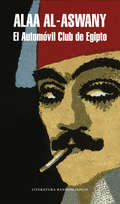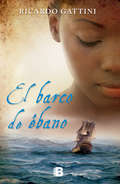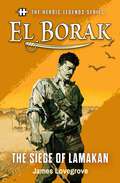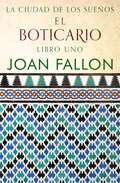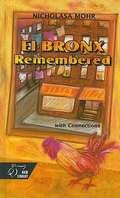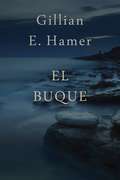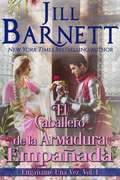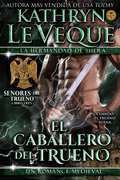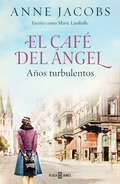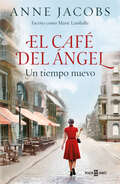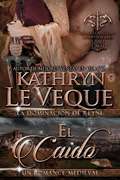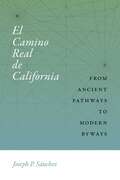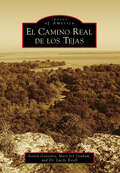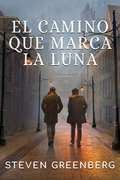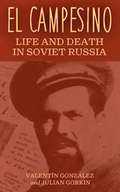- Table View
- List View
El Acuerdo
by Jill BarnettDe la Autora del New York Times Mejor en Ventas Jill Barnett llega una divertida, acogedora historia de amor sobre la batalla de los sexos… Cuando Addie Pinkney hereda la granja de su tía, el legado se siente como una respuesta a sus plegarias… hasta que ella llega y conoce a Montana Creed. Creed también tiene un reclamo sobre la tierra donde la tía y el tío de ella establecieron una granja. Los abogados de ambos explican que ellos necesitan esperar hasta que un juez emita su dictamen, pero para asegurar su reclamo prematuramente, Addie se escabulle y toma residencia en la casa de la granja antes que Montana, pensando que lo había vencido. Pero no tuvo tal suerte. Montana Creed establece un campamento enfrente de la casa, y la resultante es una encantadora guerra de astucias mientras ambos tratan de espantar uno al otro de la tierra. Pero pronto hay más en juego que sólo la tierra que ambos quieren. Estos dos solitarios deben encontrar una manera de hacer un trato, uno que llegará mucho más lejos que un trozo de frondosas tierras de granja y todo lo que ellos atesoran.
El Alamein
by Bryn HammondThe battle of El Alamein in 1942 was one of the most crucial events in the entire Second World War. Before it, the British had never won a major battle on land against the Germans; nor indeed had anyone else, even the Russians. At Alamein the British Eighth Army first thwarted the Axis attempts in North Africa to seize Cairo and the Suez Canal and then smashed through the German-Italian defences, eventually driving the Axis forces out of North Africa. This victory, by a 'British' army actually composed of a variety of nationalities including men and women from the Indian sub-continent, southern Africa, Australians, New Zealanders, French and Greeks, as well as British troops, had psychological and morale-raising significance that exceeded even its strategic importance. Nothing had the sweet smell of success prior to this battle than El Alamein and for the battered British Empire battling against the might of the Third Reich this victory was crucial to its ability to continue its war efforts. El Alamein's significance went beyond the events of the war. The opposing army commanders were perhaps the first 'celebrity' generals, attracting the attention of press and newsreel reporters alike. This led to a host of myths and tales of idiosyncratic behaviour that were shamelessly exploited by the individuals themselves and, especially in Britain, eagerly devoured by a public enamoured of the romance of warfare in this remarkable and hostile environment where men were at war with each other as well as with the elements. Drawing on a remarkable array of first-hand accounts, this book reveals the personal experiences of those on the frontline, giving the individual's point of view of the battle, from all sides, and provide a fascinating account of the minutiae detail of how war was actually fought alongside the analysis of the strategic decisions made by the generals. El Alamein 1942 is the story of exactly how a seemingly beaten and demoralized army turned near-defeat into victory in a little over four months of protracted and bloody fighting in the harsh North African desert and of the repercussions of the battle for the participants, for historians and in popular culture.
El Alamein
by Field-Marshal Michael CarverThe Second Battle of El Alamein (23 October - 11 November 1942) was a decisive battle of the Second World War that took place near the Egyptian railway halt of El Alamein and marked the watershed of the Western Desert Campaign. In August 1942, Lt.-Gen. Sir Bernard Law Montgomery took command of the 8th Army, and the British victory turned the tide in the North African Campaign, ending the Axis threat to Egypt, the Suez Canal and the Middle Eastern and Persian oil fields via North Africa.The Second Battle of El Alamein revived the morale of the Allies, being the first major success against the Axis since Operation Crusader in late 1941. The battle coincided with the Allied invasion of French North Africa in Operation Torch, which started on 8 November, as well as the Battle of Stalingrad and the Guadalcanal Campaign.This book, first published in 1962, provides a detailed account of the Second Battle of El Alamein, based on original German and British sources and drawing on the author’s own observations as one of the combatants.
El Alamein 1942
by Pier Paolo BattistelliThe Second Battle of El Alamein was one of the most decisive Allied victories of the Second World War. The Second Battle of El Alamein marked a major turning point in the Western Desert Campaign of the Second World War. El Alamein saw two of the greatest generals of the war pitted against each other: Rommel and Montgomery. Through key profiles and a chapter devoted to “The Armies,” El Alamein 1942 explores what made these men inspired leaders and what led to their respective defeat and victory. Montgomery’s success ensured that the Axis army was unable to occupy Egypt and therefore gain control of the Suez Canal or the Middle Eastern oil fields, thereby preventing a major source of income and power coming to them. The background and impact of the battle are explored in separate chapters, offering the reader clear insight into why what happened in this remote part Egypt was so central to the Allied cause. Through quotes and maps, the text explores the unfolding action of the battle and puts the reader on the front line. If you truly want to understand what happened and why — read the Battle Story.
El Alamein 1942: El Alamein 1942
by Diane CanwellThe Battlefield General game books put you in command of the forces engaged in some of history's most famous battles. Your ability to make the right tactical decision will be tested at every turn of the page. The 2nd Battle of El Alamein in October 1942 was one of the crucial turning points of WWII. Here Lieutenant General Bernard Montgomery ('Monty') and the British Eighth Army (the famous 'Desert Rats') halted the victorious advance of Field Marshal Erwin Rommel (the Desert Fox) and his Afrika Korps. Britain's vital interests in the Middle East, particularly the vital oil fields, were thus saved. The book presents the reader with a series of command decisions, aided by situation maps, directing you to the next relevant briefing depending on the option you choose. No dice are necessary to play, just this book and your tactical skill. When you buy this book, the fate of nations is in your hands.
El Alamein 1942: Turning Point in the Desert
by Richard DohertyThe Battle of El Alamein is well established as a pivotal moment of the Second World War. Following the wildly fluctuating fortunes of the opposing sides, there was a real risk that Rommels Afrika Korps and his Italian allies would break through and seize Cairo with catastrophic strategic and political implications for the Allies. That this never happened is, of course, well known but, as this highly readable yet authoritative work reveals, there were moments of extreme peril and anxiety.Churchills bold, nay desperate, decisions concerning key appointments, Montgomerys stubborn refusal to be rushed, Rommels chronic logistic problems and critical air superiority are all examined in expert detail. The authors description of the actual fighting is brought to life by personal accounts as well as his complete grasp of the plan and tactics involved.The result, seventy-five years on, is a delightfully fresh and fascinating account of one of the iconic battles, not just of the War but in military history.
El Ancestro Tikar
by Bouke IbrahimPor solicitud y con la bendición de su Majestad, aquí esta para ser compartido este manuscrito acerca del orígen del ancestro Tikar. Este es el origen de una tribu, una nación, un pueblo: los Tikar de África. Desde la histórica tierra de KUSH (el Sudán actual) hasta las tierras de Kimi y otros Reinos, tales como el Ngambe-Tikar en Camerún Un libro único en su género, ¡escrito desde una auténtica nación africana, intacto y sin diluír!, escrito por un residente actual de Gah, en la llanura de Tikar. Este libro comparte una historia escrita y hablada del antiguo pueblo Tikar. Contiene el idioma antiguo, tradiciones y costumbres ocultas que se han preservado y permitieron a un pueblo sobrevivir durante cientos de años sin la influencia de los europeos.
El Anhelo de un Beso
by Dawn Brower Diana Zamora Cuesta¿Alguna vez has soñado con celebrar una boda en Navidad? La vida de soltera nunca había tenido tan buena pinta, pero, por desgracia, aquello no iba a salvar a Lady Juliette Brooks. Su padre ha organizado su compromiso con un hombre cruel. A Juliette solo le queda una opción: obligar al duque de Kissinger a que cumpla la promesa de salvarla que le hizo hace tiempo. Grayson Abbot, el duque de Kissinger, no tiene intención de desposar a Lady Juliette. No pretende casarse con nadie. Sin embargo, le hizo una promesa y no puede faltar a su palabra... Por lo tanto, accede a regañadientes a escapar con ella. Juntos se lanzan a la aventura durante la temporada navideña. En su viaje hacia Escocia sufren retrasos y mal tiempo, pero vivirán una amistad que casi habían olvidado. ¿Descubrirá Juliette, al fin, lo que se siente al ser besada? ¿Conseguirá ganar el corazón del duque?
El Aprendiz del Pasado
by Danilo H. GomesUna sola experiencia rica en significado fue suficiente para que Douglas transformara su vida para siempre. Se dice mucho sobre el viaje en el tiempo y la corrección de errores pasados, pero ¿qué pasaría si pudiéramos interactuar con otras vidas en lugar de la nuestra? Douglas ganó esta extraña oportunidad y se involucró en conversaciones que nunca hubiera imaginado tener. Conozca la experiencia que tuvo este joven y, quién sabe, que su vida también se transforme.
El Asaltante de las Tierras Altas (Los Forajidos del Rey #2)
by Amy JareckiCuando Angus Og MacDonald, Lord of Islay acepta proteger a Robert the Bruce de las garras del rey Eduardo, se convierte en un forajido de la corona inglesa. Navegan a Irlanda, buscando el apoyo de sus familiares, pero se ven obligados a huir para salvar sus vidas. Cuando Angus escapa, no es un hombre al que encuentra escondido en su birlinn. Una pequeña brizna de muchacha ataca como una banshee gritando con un hacha de batalla en sus manos. Entonces, la ira de Dios estalla en una violenta tormenta, haciendo añicos el barco. Ahora, Angus lucha por sobrevivir, empeñado en salvarlos a ambos. Anya O’Cahan se despierta medio ahogada en una pequeña capilla en una isla desierta con nada menos que Fairhair, el hombre con el corazón del diablo, el vil hermano de la bestia que mató a su papá. Aterrada fuera de su ingenio, hace todo lo que está en su poder para escapar de las garras del Highlander. Pero los intentos de Anya son frustrados por el astuto y demasiado hermoso señor. Peor aún, Angus la lleva ante el Rey de Escocia, quien la toma como prisionera política y la deja al cuidado de nada menos que el propio Fairhair. ¿Esta unión de dos rivales odiados y plagados de una extraña y no deseada atracción estallará en pasión o en guerra?
El Automóvil Club de Egipto
by Alaa Al AswanyEl escritor egipcio de más éxito regresa con una formidable novela ambientada en El Cairo antes de la caída de la monarquía y la descolonización. A finales de los años cuarenta del siglo pasado, los pachás y los miembros de la monarquía coquetean con los diplomáticos y la aristocracia europea bajo las aspas de los ventiladores del Automóvil Club de Egipto. La extravagancia y la magnificencia de sus miembros inunda los lujosos salones y, mientras el despótico rey de Egipto y Sudán honra con su presencia la mesa de póquer, la plantilla de sirvientas y empleados del club vive atemorizada bajo la autoridad inflexible del ayuda de cámara del monarca. Entre los trabajadores se encuentra Abdelassís Hamam, un burgués arruinado del Alto Egipto que llegó a El Cairo con la esperanza de asegurar la educación de sus hijos. Al igual que sus compañeros, ha soportado hasta ahora el despotismo y la injusticia del orden establecido sin ser consciente de que una minoría ha empezado a plantar la semilla de la insurgencia dentro y fuera de las paredes del club. Serán los hijos de Abselassís quienes deberán luchar por su futuro y tomar partido en un país donde la opresión británica tiene los días contados. La crítica ha dicho...«En El Automóvil Club de Egipto el intelectual más icónico de la revolución egipcia aborda, precisamente, una rebelión.»El País «Narrador talentoso, el autor nos muestra una galería de personajes fascinantes y complejos.»Paris Match «Extraordinario, profuso, democrático.»Arte
El Barco de ébano
by Ricardo GattiniLa esclavitud como telón de fondo para una novela que nos hace cuestionarnos nuestras raíces A partir de la última travesía de un barco inglés con un cargamento de esclavos africanos, comienza esta apasionante novela cuya culminación coincide con los primeros años de la Independencia de Chile y la libertad de vientre que se declara. Una obra de sentimientos y de reconstrucción de un pasado. Ricardo Gattini reedita esta novela histórica que sintoniza hoy, más que nunca, con la llegada de inmigrantes a tierras chilenas y la forma en que los integramos como sociedad.
El Borak: The Heroic Legends Series (The Heroic Legends Series #13)
by James LovegroveCapturing the electric short fiction energy that led Robert E. Howard to be one of the top fantasy writers of the century, with exclusive serialized eBook stories starring Conan, Solomon Kane, and more by many of today&’s top writers in fantasy and sword-and-sorcery.While on an intelligence mission in Central Asia, British Lieutenant John Stock encounters Francis Xavier Gordon, the renowned adventurer better known as El Borak. Called &“The Swift,&” the Texan gunslinger is as at home in the Pamir Mountains as the snow leopards that inhabit them. Times are desperate, Gordon reveals: the legendary city of Lamakan, ruled by the mysterious Queen Zohra, is not only very real, but in danger. Surrounded by encroaching Russian troops, Lamakan faces an existential threat. With Stock desperate to learn more about Queen Zohra, and Gordon desperate to free her people, the two must venture forth into a city under siege and hope to save it. Facing fire from all sides, it is up to the fearless El Borak to rescue the mythical Lamakan from total devastation.
El Boticario
by Joan FallonEn la primera novela de una nueva serie histórica ambientada en la España mora, Joan Fallon localiza la acción en el ajetreado puerto medieval de Málaga. Siguiendo al éxito de la serie al-Andalus, nos encontramos de nuevo con los jóvenes miembros de la familia que ha escapado de la ciudad sitiada de Córdoba. Makoud, ahora un boticario de mediana edad, ha venido a Málaga con su familia para trabajar. Al poco tiempo de su llegada se enteran de la repentina muerte del califa Yahya I y de los rumores de que ha sido envenenado. A Makoud le preocupa que el veneno utilizado por los asesinos haya sido comprado en su tienda. Su hijo, Umar, ahora un soldado del ejército del califa, decide investigar, pero subestima el poder de la gente que hay detrás del asesinato y se encuentra acusado de asesinato y encerrado en los calabozos. Su, padre, familia y amigos emplean todos sus recursos para intentar ayudarlo, pero cuanto más se acercan a la verdad, mayor peligro corren.
El Bronx Remembered, with Connections
by Nicholasa MohrIn a city called New York ... In a neighborhood called El Bronx ... * The Fernandez children own a very special pet: A white hen named after their favorite Hollywood movie star. * A new girl comes to school - a gypsy child who can read palms and foretell the future. * A young boy must face the humiliation of wearing his uncle's orange roach-killer shoes to his high school graduation. In the South Bronx - or El Bronx, as it's known to the people who live there - anything can happen. A migrant "fresh off the boat" from Puerto Rico can be somebody on the mainland, pursue the American Dream ... and maybe even make it come true. Here are stories that capture the flavor and beat of El Bronx in its heyday, from 1946-1956. A New York Times Outstanding Book of the Year. Finalist, 1976 National Book Award for Children's Literature. A Notable Children's Trade Book in Social Studies (NCSS/CBC).
El Buque
by Gillian E Hamer Debra JansenThriller policíaco, desarrollado en Gales del Norte, con un toque sobrenatural. Sarah Morton espera que descubrir la verdad acerca del naufragio del Royal Charter en 1859, silencie los demonios de su pasado. Pero, atormentada por visiones y atentados contra su vida, Sarah teme que el buque pueda reclamarla como su víctima final. Desarrollada sobre la dramática y peligrosa costa de Anglesey, El Buque es una historia de codicia y perdón - de cuando los tesoros del pasado evocan los crímenes de hoy.
El Caballero de la Armadura Empañada (Engáñame Una Vez #1)
by Jill BarnettUn caballero que regresa de la guerra, se encuentra con una doncella en el bosque y se enamora a primera vista. De la autora de best sellers del New York Times, Jill Barnett, nos llega esta encantadora historia de una hermosa doncella inglesa y el valiente caballero que se desvive por ella. Desesperada por huir de un matrimonio forzado con el caballero más temido de Inglaterra, Lady Linnet de Ardenwood contrata al peligroso mercenario, William de Ros para ayudarla a escapar a un convento. Desconocido para ella, de Ros es, en realidad, el nuevo Barón Warbrooke, quien, previo acuerdo con el abuelo protector de Linnet, tiene sólo una semana para enamorarla y ganarla. Para lectores de Julie Garwood y Jude Deveraux.
El Caballero del Trueno: Cuando el Trueno suena como Hermandad De Shera
by Kathryn Le VequeCuando el Trueno suena como la Hermandad de Shera la trilogía continúa El caballero del trueno: el libro 3 de la hermandad de shera. 1258 A.D. - Libro Tres en Los Señores del Trueno: La Trilogía de la Hermandad de Shera es la emocionante conclusión de esta colección de gran éxito de la autora principal medieval Kathryn Le Veque. En el Libro Tres, el enfoque en Tiberius, el hermano menor de Shera, se enamora de la encantadora Lady Douglass, la hija de un caballero enemigo. Pero el amor no conoce fronteras, ya que Tiberius y Douglass se encuentran atrapados en la política de Simon de Montfort contra Henry III, y la lealtad de Tiberius pronto se pone en duda. ¿Sigue del lado de De Montfort o ha decidido seguir su corazón y, por lo tanto, el enemigo? Pronto se convierte en un juego de espionaje, honor y lealtades familiares, ya que Tiberius debe elegir lo que es más importante para él: la causa de De Montfort o el amor de Douglass. No te pierdas esta apasionada y turbulenta historia de amor.
El Café del Ángel. Años turbulentos (Café del Ángel #Volumen 2)
by Anne JacobsLa autora de «La Villa de las Telas» vuelve con la segunda entrega de una emocionante nueva trilogía en torno a una familia que regenta un evocador café alemán tras la Segunda Guerra Mundial. Wiesbaden, 1951. Al Café del Ángel le ha salido competencia. Junto al tradicional establecimiento de la familia Koch ha abierto otro más moderno: el Café del Rey. Mientras Hilde Koch intenta en vano convencer a sus padres para que modernicen el local, su gran amor, por el que tanto ha luchado, parece a punto de resquebrajarse.A su hermano August tampoco le van mejor las cosas. Cuando regresa a Alemania, tras haber sido prisionero de guerra de los rusos, comienza a sentirse atraído precisamente por una misteriosa joven rusa, cuya llegada amenaza con dividir a la familia...
El Café del Ángel. Un tiempo nuevo
by Anne JacobsLa autora de La Villa de las Telas vuelve con una cautivadora nueva saga familiar en torno a un emblemático café tras la Segunda Guerra Mundial. Un legendario caféUna familia valienteUn amor prohibido Wiesbaden, 1945. La joven Hilde apenas puede creer su suerte: la guerra ha terminado y el Café del Ángel se ha salvado milagrosamente. Hilde sueña con volver a convertir el negocio familiar en el glamouroso lugar que reunía a artistas y personalidades de la ciudad. Pero los primeros conflictos no tardan en surgir cuando una bella joven entra en el café y se presenta como su prima Luisa. ¿Quién es esa enigmática mujer que ha luchado por llegar hasta allí desde Prusia Oriental? Entre las dos jóvenes crece una rivalidad que amenaza con envenenar el ambiente del café. Hasta que ambas se dan cuenta de que tienen algo en común: un secreto de la guerra que les ha perseguido hasta el día de hoy...
El Caido
by Kathryn Le Veque1332 D.C. – Como primer comandante de Roger Mortimer, Comandante de March, cuando se apodero del trono del Joven Edward III, el Señor Mathias de Reyne es el tipo de caballero que todos los hombres aspiran a ser, justo, poderoso, inteligente, y audaz. Hombres en ambos lados de las líneas de Mortimer/Edward respetan y admiran a de Reyne por su sobresaliente carácter, incluyendo a la Espada del Dragón en persona, Tate de Lara. Antes de que la Guerra separara a los hombres en dos grupos– aquellos que apoyaban a Mortimer y aquellos que apoyaban al rey legitimo – Mathias, Tate, Kenneth St. Hever y Stephen de Pembury eran amigos inseparables. Pero entonces, lados fueron escogidos y líneas fueron dibuja. Cuando Roger perdió su cabeza, Mathias de Reyne fue perdonado por su gran y justa reputación, Despojado de sus tierras y títulos, sin embargo, él es forzado a la oscuridad. Él fue conocido en leyendas como El Caído. Más de un año después de ser despojado de su caballerazgo, Mathias ahora hace su vida como un herrero en el norte de Cumbrian en el pueblo de Brampton. Una mañana, el escucha gritos de ayuda y, siendo innatamente valiente y servicial hombre, sigue los gritos y llegó a una terrible escena. Rescatando a una joven mujer de un demonio, el muy rápidamente se da cuenta de que la joven mujer es la cosa más hermosa él hubiera alguna vez visto. La Señora Cathlina de Lara es una belleza exuberante con cabello oscuro y parpadeantes ojos oscuros, y la atracción en el par es inmediata. Pero ella también es una de Lara, relacionada con el hombre que tomo los títulos de Mathias de él… su ex mejor amigo. Aun así, él no puede olvidar la belleza de ojos oscuros y luego se encuentra a si mismo barrido en un salvajemente apasionada Aventura amorosa, rompiendo su promesa de nunca cargar armas nuevamente la reasumir su título de caballero sin permiso del rey y escapando hacia Escocia. De las brutales fronteras Escocesas a los c
El Camino Real de California: From Ancient Pathways to Modern Byways (Querencias Series)
by Joseph P. SánchezThe arrival of Spaniards in 1769 served as a defining moment for California&’s future. They described the First Peoples and their cultures and provided a window into the evolution of California&’s Camino Real. In an effort to establish the Camino Real de California as a UNESCO World Heritage Site, Joseph P. Sánchez explores the rich history of the path running from San Diego to San Francisco in this significant study. While records capture the stories and legends of the Camino Real there is little information on the exact ground route. Sánchez utilizes historical and archaeological literature and the documentation from Spanish and Mexican archives to begin the much-needed process of authentication of this braided corridor to further establish the Camino Real de California&’s integrity and valuable history, which is shared with Spain, Mexico, and Native American tribes. Their story is part of the patrimony of the Camino Real de California, which ought to be authenticated, preserved, and protected for future generations to enjoy.
El Camino Real de los Tejas
by Dr Lucile Estell Mary Joy Graham Steven GonzalesThe Royal Road of the Tejas Indians, El Camino Real de los Tejas, was born hundreds of years ago when the Native Americans followed routes used by buffalo and other animals, realizing that these early creatures knew the best paths to take. Also known as Kings Highway, it later became a major thoroughfare used by travelers from the East coming to Louisiana, Texas, and Mexico. In 2004, El Camino Real de los Tejas took on new meaning when the historical road was designated as the 19th National Historic Trail in the United States. Development is guided by El Camino Real de los Tejas National Historic Trail Association housed in Austin, Texas.
El Camino que marca la Luna
by Steven Greenberg¿Qué tanto se puede estirar el amor fraternal sin romperse? "...es una obra de ficción que proyecta una atmosfera histórica extraordinaria, además de los personajes que, una vez entran en tu corazón, permanecerán ahí por siempre”. ~ Valorado con 5 estrellas por K.C. Finn en Readers’ Favorite Book Reviews Samuel y Aaron Katz tuvieron una conexión muy frágil durante su infancia, misma conexión que se daña cuando Aaron deja una Polonia pre-Segunda Guerra Mundial para irse a Palestina, y luego se ve afectada de nuevo cuando Samuel es enviado a un Gulag Soviético en el ártico. Es entonces cuando Aaron debe decidir qué tan dispuesto está a ir para salvar a su hermano menor. Desde Polonia a un Tel Aviv en tiempos de guerra, desde un campo penitenciario soviético congelado a un Irán controlado por los aliados, y a las profundidades del Mandato de Palestina en sus preparaciones desesperadas para combatir la invasión Nazi, “El camino que marca la Luna” indaga en los lazos de la hermandad y las fuerzas que los intentan romper. “Los pasajes históricos y el viaje épico tratados con lujo de detalles, “El camino que marca la Luna” lleva de la mano al lector a través de los horrores de la Segunda Guerra Mundial, acompañada de unos personajes que son sensacionales. Resulta en un recorrido intenso, de esos que no permiten distraerse, obligándote a analizar hasta el más ínfimo detalle. Tiene lo mejor de cada género, ya sea el drama, los conflictos históricos, el romance o la acción en su máximo esplendor. Una obra que se quedará contigo eternamente”. ~ Valorado con 5 estrellas por Anne-Marie Reynolds en Readers’ Favorite Book Reviews EVOLVED PUBLISHING PRESENTA una atractiva historia que se desarrolla en 200 días de esperanza en 1942, cuando los judíos de Palestina vivieron el terror de una invasión Nazi. Del ganador del best seller Gale
El Campesino: Life and Death in Soviet Russia
by Valentin R. Gonzalez Julian GorkinEl Campesino: Life and Death in the Soviet Union, first published in 1952, is the dramatic autobiographical account of Spanish revolutionary Valentín Gonzalez (1904-1983). The book (also titled Listen Comrades: Life and Death in the Soviet Union) details Gonzalez’ experiences in the Spanish Civil War, his conversion to communism, and his flight to the Soviet Union following the Nationalist victory. In Russia, however, he is eventually arrested, tortured by the N.K.V.D., and sent to Vorkuta labor camp, a notorious part of the Soviet gulag located north of the Arctic Circle. Gonzalez, thoroughly disillusioned, manages to survive the brutality of the gulag, escaping Vorkuta (only to be recaptured and placed in a nightmarish cell filled with rats and snakes), and eventually completing his sentence and making his way across the border of the Soviet Union and into freedom in the west.
